Quote of the Day - Sep 30/05
Harlan Ames
agonizomai (Greek): to strive, fight, labour fervently
“Strive to enter through the narrow door. For many, I tell you, will seek to enter and will not be able..."
Luke 13:24



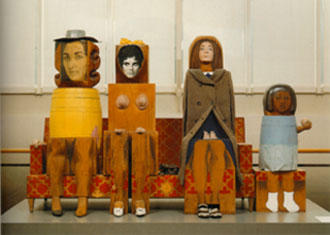
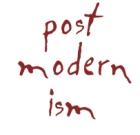 1. That the failure of the traditional and/or modern church is a failure to present the gospel in ways relevant to changing cultural attitudes and realities
1. That the failure of the traditional and/or modern church is a failure to present the gospel in ways relevant to changing cultural attitudes and realities It is easy to look at symptoms such as the decline of membership, or membership of a certain demographic component of the church population, and jump on simple solutions that promise "results". This seminar says we are out of date and that we need to adapt our presentation to a particular target group (postmoderns). The underlying problem, they say, is our staleness and our lack of relevancy. But is it? Is this truly the problem, or is it only a symptom of something far more basic?
It is easy to look at symptoms such as the decline of membership, or membership of a certain demographic component of the church population, and jump on simple solutions that promise "results". This seminar says we are out of date and that we need to adapt our presentation to a particular target group (postmoderns). The underlying problem, they say, is our staleness and our lack of relevancy. But is it? Is this truly the problem, or is it only a symptom of something far more basic?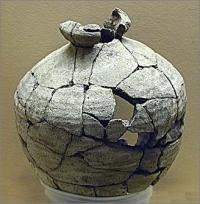 The true church is made up of people in whom the Living Christ dwells by the Spirit through the obedience of faith. The more submitted and obedient to Him we are, the more He is seen in our thoughts, words and deeds. We must decrease and He must increase. In such a picture what can there be that we can call irrelevant to any age or society? What hinders Christ is nothing more nor less than our own failure to walk in Him. If we were so walking then He would be walking in us and who would dare to call Him irrelevant? He doesn't change. He is the same yesterday and today and forever. He is above and beyond past, present and future - beyond old, modern and post-modern. If our relationship with Him was all it should be we would be displaying Him by nature (not just by works) and His nature is always relevant.
The true church is made up of people in whom the Living Christ dwells by the Spirit through the obedience of faith. The more submitted and obedient to Him we are, the more He is seen in our thoughts, words and deeds. We must decrease and He must increase. In such a picture what can there be that we can call irrelevant to any age or society? What hinders Christ is nothing more nor less than our own failure to walk in Him. If we were so walking then He would be walking in us and who would dare to call Him irrelevant? He doesn't change. He is the same yesterday and today and forever. He is above and beyond past, present and future - beyond old, modern and post-modern. If our relationship with Him was all it should be we would be displaying Him by nature (not just by works) and His nature is always relevant. The fields are indeed white for harvest. We have been sent to reap that which we did not sow. Others have sown and we have entered into their labour. But it is God that gives the increase, no matter who sows and who labours. People in Jesus' time were hungry for the bread and the miracles - He was popular for a season - but in no time at all He was rejected and despised and crucified to the cries of them all. The gospel of truth is NOT popular. If our gospel is popular then we are most likely presenting another gospel. It is His sheep who hear His voice, and He calls them by name. When the gospel is preached then the "moths" will come to the flame, but the "cockroaches", contrary to the idea that they will scurry for the baseboards, will often try to eat the messenger.
The fields are indeed white for harvest. We have been sent to reap that which we did not sow. Others have sown and we have entered into their labour. But it is God that gives the increase, no matter who sows and who labours. People in Jesus' time were hungry for the bread and the miracles - He was popular for a season - but in no time at all He was rejected and despised and crucified to the cries of them all. The gospel of truth is NOT popular. If our gospel is popular then we are most likely presenting another gospel. It is His sheep who hear His voice, and He calls them by name. When the gospel is preached then the "moths" will come to the flame, but the "cockroaches", contrary to the idea that they will scurry for the baseboards, will often try to eat the messenger. It looks so pious, so loving, so altogether spiritual when we refuse to condemn sin in another. We have attained, we think, to that lofty pinnacle of Christian maturity where we are finally able to show true love.
It looks so pious, so loving, so altogether spiritual when we refuse to condemn sin in another. We have attained, we think, to that lofty pinnacle of Christian maturity where we are finally able to show true love.
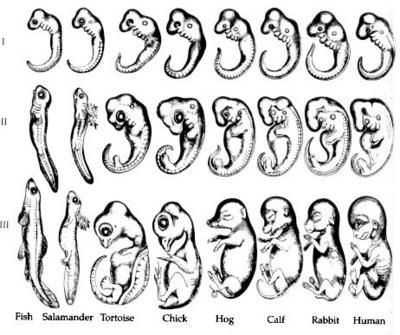 We've all imagined similar "transformations" in the way clouds move, but without postulating that they are proof of evolution. What we perceive in a set of data may say more about us than it does about the information we are looking at. In this case, it seemed to - especially since Haeckel altered the drawings to make his point. But that didn't stop fervent evolutionists from using this particularly wacky idea as a club to pound away upon a less scientifically minded public by presenting it as fact, and by using it in the arsenal of weapons assigned to ridiculing those who thought God made everything from nothing, as it says in Genesis.
We've all imagined similar "transformations" in the way clouds move, but without postulating that they are proof of evolution. What we perceive in a set of data may say more about us than it does about the information we are looking at. In this case, it seemed to - especially since Haeckel altered the drawings to make his point. But that didn't stop fervent evolutionists from using this particularly wacky idea as a club to pound away upon a less scientifically minded public by presenting it as fact, and by using it in the arsenal of weapons assigned to ridiculing those who thought God made everything from nothing, as it says in Genesis.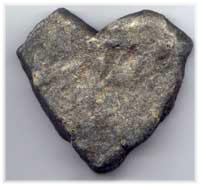 This incident reinforces the depravity of the minds of the religious leadership. Now, instead of reacting to something Christ permitted, as with the disciples shucking ears of grain on the Sabbath - they have compounded their error. This is a progressive hardening of the heart. It is a clarion call to us all. "While it is called today repent and do not harden your hearts!" They have begun not merely to question - not only to criticize - but now to sit in judgment watching for an opportunity to attack.
This incident reinforces the depravity of the minds of the religious leadership. Now, instead of reacting to something Christ permitted, as with the disciples shucking ears of grain on the Sabbath - they have compounded their error. This is a progressive hardening of the heart. It is a clarion call to us all. "While it is called today repent and do not harden your hearts!" They have begun not merely to question - not only to criticize - but now to sit in judgment watching for an opportunity to attack. Our God is a relational God. He would still be a relational God if He had never made another being, angel or human. His relationship is expressed within Himself – between the Persons of the Godhead and it is entirely self-sufficient, needing nothing from any of His creatures. But He has chosen to make creatures nevertheless. In His creative love, He has purposed to make beings who can delight in Him.
Our God is a relational God. He would still be a relational God if He had never made another being, angel or human. His relationship is expressed within Himself – between the Persons of the Godhead and it is entirely self-sufficient, needing nothing from any of His creatures. But He has chosen to make creatures nevertheless. In His creative love, He has purposed to make beings who can delight in Him.
We were, in fact, made in His very image. We were endowed with the faculties that make us conscious, rational, moral beings who could willingly relate to Him in love. The fall corrupted all of that. The redemption restores it. Yet redemption goes even further because it discloses an attribute of God that we could never otherwise have known, whereby He can be loved for His grace towards those who despise and reject Him.
Though God is not the cause of evil, He is certainly the permitter of it. And His wisdom had to have known, before He even made him, that man would fall. God did not cause man to fall, but he made man able to fall. Yet, despite what many might think, the redemption was not a "Plan B" devised to react to the unforeseen. God does not play catch-up. Though we cannot know the secret things of the Divine Mind we can be sure that God, Who knows the end from the beginning, made mankind even though He knew he would fall.
Only Omnipotence and Holiness could possibly encompass such a course of action. For He already knew, without being the proximate cause, that millions would be consigned to a hell of eternal damnation as a result of His creative act. What could possibly be worth such a debacle? Whatever it is, it must be something unimaginably wonderful and glorious. And it must be something in which the Living God will be vindicated as blameless, holy and loving, because He cannot act contrary to His nature.
And I am convinced that this glorious thing that God is doing from before the beginning of the world is in nothing less than revealing his grace through Jesus Christ, His Son. We are told that He is destined as the Lamb slain before the foundation of the world. We know that those who are in Christ were chosen before the foundation of the world to be vessels of His righteousness – holy and blameless before Him. It is inferred that the names of the elect were written in the book of life before the world began.
God had a plan from before the beginning of the creation that is centred in Jesus Christ. The Bible tells us that all things are from Him and through Him and to Him. We are told that all things were made by Him and that in Him was life, and the life was the light of men. He is before all things and all things hold together in Him. He is worthy to receive blessing and honour and glory and power forever. He is the very image of the invisible God, the firstborn of all creation. He came to make the Father known and to show us the Way by being the Way. He is the centre of all history and the reason for all existence.
He is the expression of the wisdom of God. Crucified, submitted, empty of self. He is alien to fallen humanity, which is unwilling to die, rebellious and full of self. And He came to forge the means and the way by which many sons would come to glory. It is His grace that makes it all possible. His willingness to be emptied of all the glory of His rightful Godhead. To live as man ought to have lived, even in the midst of a world that hated Him, surrounded by strong bulls of Bashan in the form of the evil spirits bent on His destruction. All of His own creation was against Him - conspiring, opposing, rebelling – and still He came, lived and died ignominiously as a criminal for the glory of the Father and the sake of the saints He came to save.
For this reason God has highly exalted Him and given Him a Name above all Names. He has shown us the Way. Emptiness of all self and the putting to death of the flesh – the expression of the most abject humility as the pathway to glorious exaltation at the hand of God. There is no glory without the cross. No salvation. And what was true of God in human form is no less true of His mere creatures.
Now should we bow down in awe. For this has been the purpose of God from eternity. That through the rebellion of His creation His most glorious attributes of grace, mercy and love should be displayed towards those who are being saved.

God is omnipotent
God is omnipresent
God is omniscient
God is holy
God is just
God is love
I feel quite comfortable in stating that any professor who denies any of these things denies the God of the Bible. To do that is to deny Christ and to deny Christ is to be condemned. It’s tough, I know – but remember that I am not speaking of ignorance here. I am speaking of denial. Willful, informed, considered denial in the face of loving correction. It is an active thing. “I do not accept this as truth.” If you do not accept these things then you do not accept the Christ Who came to declare and to show them, and without Whom there is no salvation.
It goes without saying that any pastor, teacher, elder, seminarian, apologist or other leader who openly and actively denies, undermines, or publicly questions these things has departed from the faith - or never had it to begin with. As such they cannot help but harm the flock, lead others astray and undermine the cause of Christ. Again, it's not very complicated. We make it complicated by misunderstanding the differences between discernment and judgment and between saints and serpents. Or perhaps we do so by a simple failure to stand on our hind legs, acquit ouselves as men and show that we believe God.
It is only as long as these false teachers abide in the church that they are to be judged, disciplined and if necessary expelled. It is the loving thing to do. When they are outside the church where they belong, then they can be evangelized and loved as we would any other pagan - without judgment or discipline and with a call to repentance and faith.
 26 In the sixth month the angel Gabriel was sent from God to a city of Galilee named Nazareth, 27 to a virgin betrothed to a man whose name was Joseph, of the house of David. And the virgin’s name was Mary. 28 And he came to her and said, “Greetings, O favored one, the Lord is with you!” 29 But she was greatly troubled at the saying, and tried to discern what sort of greeting this might be.
26 In the sixth month the angel Gabriel was sent from God to a city of Galilee named Nazareth, 27 to a virgin betrothed to a man whose name was Joseph, of the house of David. And the virgin’s name was Mary. 28 And he came to her and said, “Greetings, O favored one, the Lord is with you!” 29 But she was greatly troubled at the saying, and tried to discern what sort of greeting this might be....when Christ came into the world, he said, “Sacrifices and offerings you have not desired, but a body have you prepared for me; in burnt offerings and sin offerings you have taken no pleasure. Then I said, ‘Behold, I have come to do your will, O God, as it is written of me in the scroll of the book.” (Hebrews 10:5-7)
Having come face to face with his unbelief, Ludemann has now turned his guns on church bureaucrats and liberal theologians. Many church officials, Ludemann claims, no longer believe in the creeds, but simply "interpret" the words into meaninglessness. Liberal theologians, he asserts, try to reformulate Christian doctrine into something they can believe, and still claim to be Christians. He now describes liberal theology as "contemptible."
Looking back on the whole project of liberal theology, Professor Ludemann offered an amazing reflection: "I don't think Christians know what they mean when they proclaim Jesus as Lord of the world. That is a massive claim. If you took that seriously, you would probably have to be a fundamentalist. If you can't be a fundamentalist, then you should give up Christianity for the sake of honesty."
 The daughter of a close friend of mine is serving in short-term mission in a country where poverty, disease, violence and death are nearer to everyday experience than here in "civilized" society. She recently witnessed the laboured expiry of a small baby. It had been brought to a mission clinic in an advanced state of malnutrition and disease. The technician had to tell the father that it was too late for human intervention to help. My friend's daughter and the technician simply watched and prayed as, over the space of half an hour, the baby grew fitfully weaker and finally passed into eternity. What follows is my note to her about what happened.
The daughter of a close friend of mine is serving in short-term mission in a country where poverty, disease, violence and death are nearer to everyday experience than here in "civilized" society. She recently witnessed the laboured expiry of a small baby. It had been brought to a mission clinic in an advanced state of malnutrition and disease. The technician had to tell the father that it was too late for human intervention to help. My friend's daughter and the technician simply watched and prayed as, over the space of half an hour, the baby grew fitfully weaker and finally passed into eternity. What follows is my note to her about what happened.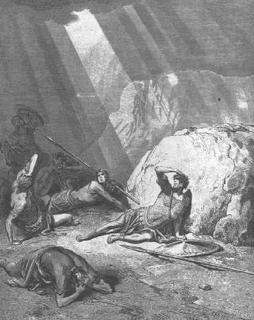 Saul rose from the ground, and although his eyes were opened, he saw nothing. So they led him by the hand and brought him into Damascus.
Saul rose from the ground, and although his eyes were opened, he saw nothing. So they led him by the hand and brought him into Damascus. The Bible makes it clear that we human beings were made to be servants – not autonomous little islands of will, picking and choosing according to our own momentary whims. We either serve God or we serve Satan. We cannot serve both. But in either case serving is what we do because that’s how we were made.
The Bible makes it clear that we human beings were made to be servants – not autonomous little islands of will, picking and choosing according to our own momentary whims. We either serve God or we serve Satan. We cannot serve both. But in either case serving is what we do because that’s how we were made.
 Of course, it is forbidden in this day and age to associate worms with the condition of mankind. It is no longer considered acceptable in a post-modern church, where self-image, self-respect and just about self-everything-else has come to the fore. We are far too enlightened to allow that sort of “dehumanizing” description to distort the new picture of men as lovable, but wrong-headed little scamps who need to have their mistakes fixed up. Consider, for example that great hymn of Isaac Watts from 1707 entitled “At The Cross”. The first verse originally read as follows:
Of course, it is forbidden in this day and age to associate worms with the condition of mankind. It is no longer considered acceptable in a post-modern church, where self-image, self-respect and just about self-everything-else has come to the fore. We are far too enlightened to allow that sort of “dehumanizing” description to distort the new picture of men as lovable, but wrong-headed little scamps who need to have their mistakes fixed up. Consider, for example that great hymn of Isaac Watts from 1707 entitled “At The Cross”. The first verse originally read as follows:Since then, the old-fashioned “excesses” of diminishing the status of man and of exalting the Name of God have gradually been all but eradicated. Until we have now arrived at the place where we can regard the words of Watts as that sort of over-the-top hyperbole or false humility which was so typical of less enlightened times. God forbid that people today should be offended with such imagery and be encouraged to see themselves as worms!Alas! and did my Savior bleed
And did my Sovereign die?
Would He devote that sacred head
For such a worm as I? **
When will we once more wake up to the truth of the gospel that makes man a helpless, unlovely, sinful, dreadful, disgraceful, perverse, stiff-necked, rebellious, profligate evildoer who is entirely dependent upon the grace of God to even know that he needs salvation, let alone be able to find it or live it? A proper understanding of this truth will serve to magnify the love and the Name of Christ. Continuing in failure to preach it will result in the further exaltation of God’s creatures, instead of the God in whom we all live and move and have our being.“If any man doth ascribe aught of salvation, even the very least, to the free will of man, he knoweth nothing of grace, and he hath not learned Jesus Christ aright.”